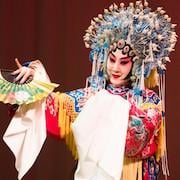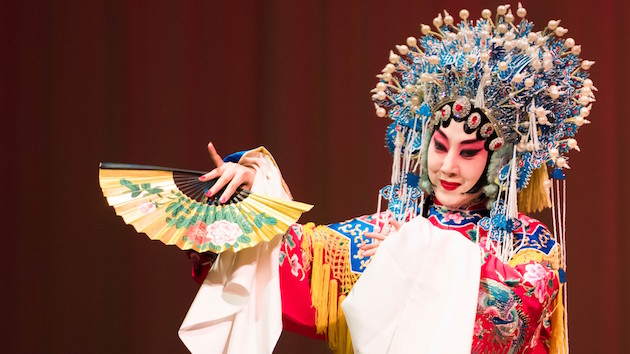
The Stanford Pan Asian Music Festival plays this weekend (Friday and Saturday, February 3,4) and features a series of three concerts that reflect what festival director Jindong Cai describes as the growing prestige and cultural power of Asian music — from Tehran to Beijing.
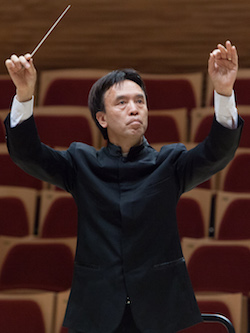
Cai, an associate professor in the Stanford University Center of East Asian Studies, founded the festival 2005. He is also the festival’s conductor. “When I created this festival, my main purpose was to establish a platform on which to explore both traditional and contemporary Asian music, and to give American audiences an opportunity to see how music affects people in their everyday lives, including pop music and even music criticizing the government.”
The opening concert, on Friday night, titled “Music from Shanghai,” celebrates the Chinese New Year; 2017 is the Year of the Rooster. The performance features Symphony Silicon Valley, along with a 120-person chorus from the local Chinese community on the Peninsula. Soloists come from both the Shanghai Conservatory of Music and the Beijing Opera Company.
“I consider Shanghai as the cradle of western music in China,” said Cai. “The first Chinese symphony was in Shanghai, the first music conservatory; the first great Chinese composer was from Shanghai.”
The program includes: In Memoriam and Nostalgia (Huang Zi, 1929);
“Butterfly Lovers” violin concerto (Zhanhao He/ Chen Gang, 1959);
Symphonic Peking Opera’s Taking Tiger Mountain by Strategy (from the Cultural Revolution, 1969); Sorrowful Comfort, (Ye Xiaogang, 2010); and Drinking Wine by the Stream Game (by Ye Guohui, 2014).
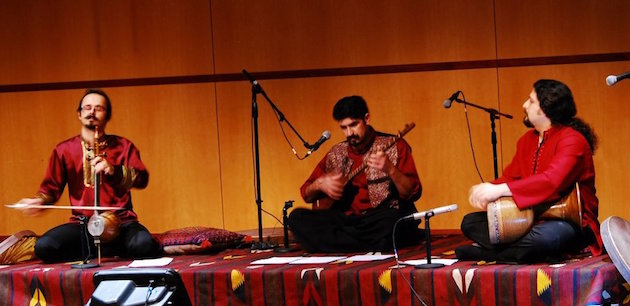
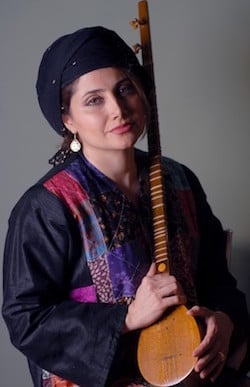
The two concerts on Saturday afternoon and evening, focus on Iranian music. Unfortunately, the great Iranian singer-songwriter, Mohsen Namjoo, sometimes called the Bob Dylan of Iran, has had to withdraw for health reasons. Nevertheless, the show will go on. On Saturday afternoon, there’s a family concert with singing, drumming, and dancing from Iran. Master artists include Sharokh Moshkin Ghalam, Sahar Dehghan, and the Zagros Trio Ensemble.
The Saturday evening concert includes the great singer, and painter, Mojgan Shajarian who will present selections of Persian classical music. She will be joined by renowned musicians Pejman Hadadi, setar player Amir Nojan, and gheychak player Hamed Afshari.
China’s New Cultural Weight
As to why Chinese music in particular has drawn so much interest in the last 10 years in America, Cai notes not only the pervasive and aggressive cultural offensive of the Chinese government but also the growing prominence of artists within China.
“Chinese musicians and composers are no longer ‘backseat’ artists. They’re becoming mainstream and well recognized. There’s also been a construction wave, across China, of beautiful new concert halls and opera houses with the very best acoustic systems. It’s more evidence that the government is taking culture seriously, that they’re starting to see that culture, what’s often referred to as ‘soft power,’ is very effective. And so now the question is, What do you put in the concert halls? This is one reason we see more interest in China in recruiting people from overseas.”
“In the classical music world,” Cai added, “everyone is searching for the future of classical music in the 21st century. We are playing repertoires that are 200 to 300 years old. Where do we go now? People always ask if the classical music future is in China and I would say that certainly China may greatly contribute to the future of classical music. We already see artists coming this way, along with Chinese compositions, and look at all the Chinese operas. We must have a voice for our time and China’s is part of that voice.”
Jindong Cai is the author of two books, both written with his wife, Sheila Melvin: Rhapsody in Red: How Western Classical Music Became Chinese (2004) and Beethoven in China (2016). For more information, visit the festival website.

